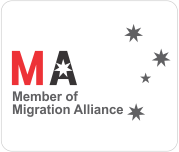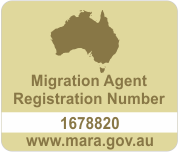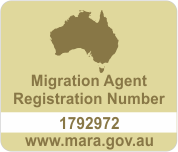Why Study Primary Education and Teaching?
Teaching is a highly regarded, lucrative profession in Australia and a Bachelor’s/Master’s degree in Early childhood education paves the way for you. Australia has high expectations from its teachers and so it has set high standards. Therefore, when you successfully make it as a teacher in Australia, you become a sought-after teacher anywhere across the world. To become a schoolteacher in Australia, you need to possess excellent communication skills and knowledge in your subject and specialize in teaching.
A degree in Primary Education is a combination of educational theory balanced out with hands on and classroom learning at primary set ups across schools. Primary School Teachers play a critical role in development of children’s foundations skills, physical and social competencies that set them up for life.
Pathway to Australian Permanent Residency
Step: 1Achieve a qualification in Teaching (Bachelors / Masters) |
Step: 2Get your skill assessment from AITSL |
Step: 3Lodge your EOI at once you acquire sufficient work experience and PR points |
Step: 4Get invited to apply for one of the permanent visa options |
There are varied occupations in teaching and education that qualify for positive skill assessment. As part of your coursework, a designated number of supervised teaching hours are meant to be completed. An assessment procedure by a relevant recognized authority is mandatory as apart of visa application for migration purpose. As per Job Outlook, teachers have much lower rate of unemployment compared to other occupations in Australia.
Courses Offered
- Certificate III in Early Childhood Education and Care
- Diploma of Early Childhood Education and Care
- Bachelor of Education (Early Childhood and Primary)
- Bachelor of Education (Secondary Teaching)
- Bachelor of Special Education
- Master of Teaching (Early Childhood)
- Master of Teaching (Secondary)
PR visa options for Teaching graduates
| Occupation Include
ANZSCO Codes: 24111, 241213, 241411 |
Featured Skills List | Potential Visa Types |
| 241111- Early Childhood (Pre-primary School) Teacher
241213- Primary School Teacher
241411- Secondary School Teacher
241311- Middle School Teacher / Intermediate School Teacher 134111- Child Care Centre Manager 421111- Child Care Worker |
MLTSSL
|
186 – Employer Nomination Scheme Visa 189 – Skilled Independent – Point Tested 190 -Skilled Nominated 489 – Skilled Regional (Provisional) – Family sponsored 489 – Skilled Regional (Provisional) – State or Territory nominated 187 – Regional Sponsor Migration Scheme 494 – Skilled Employer Sponsored Regional (Provisional) – Employer Sponsored Stream 491 – Skilled Work Regional (Provisional) Visa – State or Territory nominated 491 – Skilled Work Regional (Provisional) Visa – Family sponsored |
What services does an Early Childhood (Pre-primary School) Teacher Provide?
- teach the basics of numeracy, literacy, music, art, and literature to early childhood (pre-primary) students and promote students’ social, emotional, intellectual, and physical development.
Early Childhood (Pre-primary School) Teacher tasks include
- planning and structuring learning in both indoor and outdoor environments using a variety of materials and equipment to facilitate students’ development
- providing a variety of experiences and activities to develop motor skills, cooperative social skills, confidence and understanding
- promoting language development through storytelling, role play, songs, rhymes and informal discussions held individually and within groups
- observing students to evaluate progress and to detect signs of ill health, emotional disturbance, and other disabilities
- observing nutritional health, welfare and safety needs of students and identifying factors which may impede students’ progress
- discussing students’ progress with parents
- attending parent interviews, and staff and committee meetings
- participating in community and family support programs as appropriate
- supervising student teachers on placement
What services does a Primary School Teacher Provide?
- Teach a range of subjects within a prescribed curriculum to primary school students and promote students’ social, emotional, intellectual, and physical development.
Primary School Teacher tasks include
- Teaching literacy, numeracy, social science, creative expression, and physical education skills to primary school students
- Presenting prescribed curriculum using a range of teaching techniques and materials
- Developing students’ interests, abilities, and coordination by way of creative activities
- Guiding discussions and supervising work in class
- Preparing, administering, and marking tests, projects, and assignments to evaluate students’ progress and recording the results
- Discussing individual progress and problems with students and parents, and seeking advice from Student Counsellors and senior teachers
- Maintaining discipline in classrooms and other school areas
- Participating in staff meetings, educational conferences, and workshops
- Liaising with parent, community, and business groups
- Maintaining class and scholastic records
- Performing extra-curricular tasks such as assisting with sport, school concerts, excursions, and special interest programs
- Supervising student teachers on placement
What services does a Secondary School Teacher Provide?
- Teach one or more subjects within a prescribed curriculum to secondary school students and promote students’ social, emotional, intellectual, and physical development.
Secondary School Teacher tasks include
- Presenting prescribed curriculum using a range of teaching techniques and materials
- Developing students’ interests, abilities, and coordination by way of creative activities
- Guiding discussions and supervising work in class
- Preparing, administering, and marking tests, projects, and assignments to evaluate students’ progress and recording the results
- Discussing individual progress and problems with students and parents, and seeking advice from Student Counsellors and senior teachers
- Maintaining discipline in classrooms and other school areas
- Participating in staff meetings, educational conferences, and workshops
- Liaising with parent, community, and business groups
- Maintaining class and scholastic records
- Performing extra-curricular tasks such as assisting with sport, school concerts, excursions, and special interest programs
- Supervising student teachers on placement














